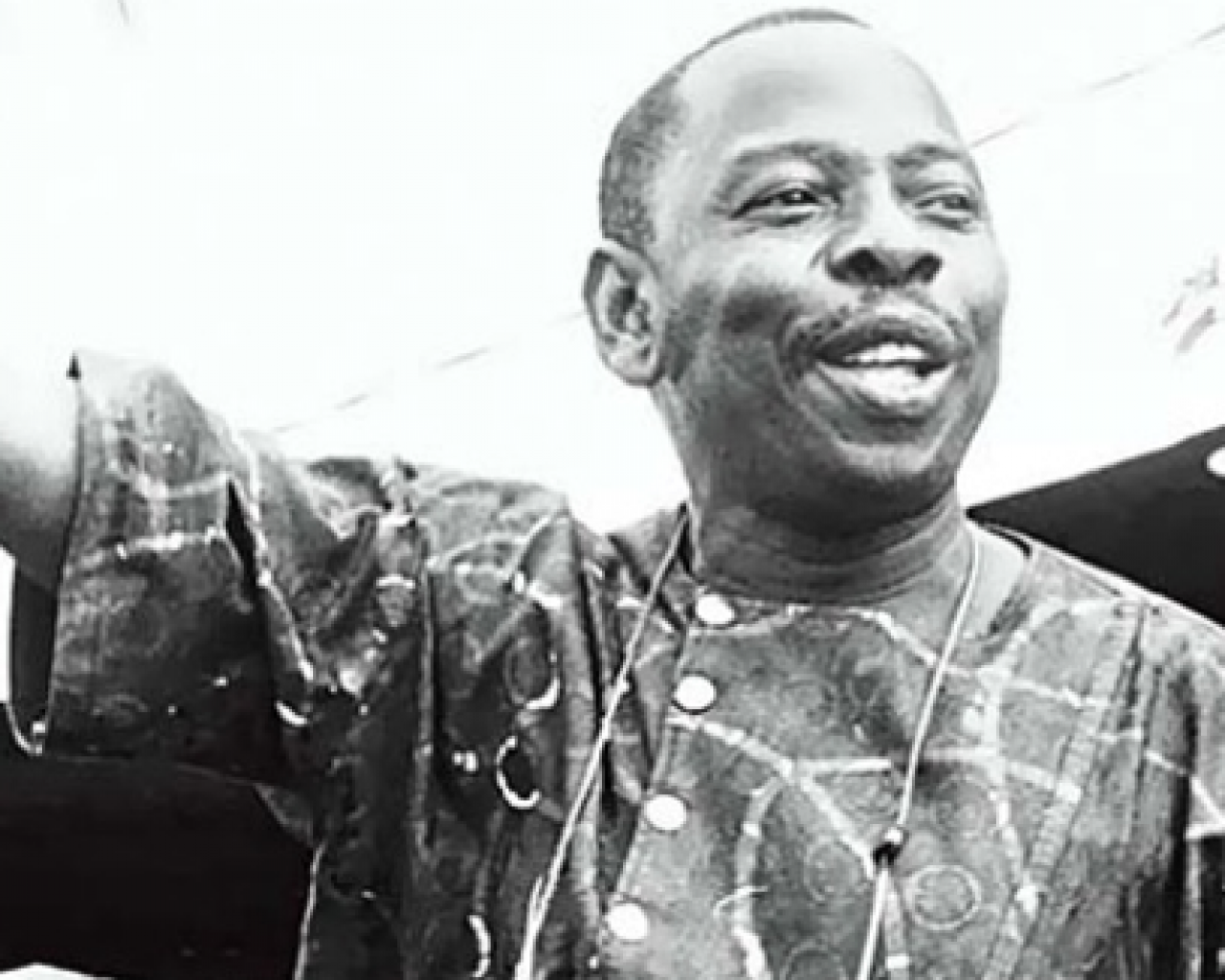
OGONI LAND:KEN SARO -WIWA DIED DUE TO POOR JUGDGEMENT
BY ABDULMUMINI ADEKU
The Late Mr Ken Saro-Wiwa and globally renowned
environmentalist and poet is said to
have died due to poor judgment of the prevailing g circumstances of his times
in the 1990s.
A key student union activist who also marked sometime in
detention at the time said that irrespective of the grievances at the time it
was wrong for Saro-Wiwa to have ordered the
killings of the 12 elders of the land who were working against his agitations.
In an exclusive chat with The News office Desk of Paedia
Express Multimedia Group in Lagos,Nigeria, said as The President of the
Movement for the Survival of Ogoni People [M.O.S.O.P.],he had the influence to
have spoken his fellow agitators at the time to maintain calm while looking for
other ways to solve the environmental crisis in the Niger Delta.
He debunked all the claims been made by sympathizers that
Saro-Wiwa was not aware that the Ogoni 12 were going to be attacked and then
killed insisting that it was a socio -cultural narrative hatched by the people
of his place to cover -up a wrong .
According to him ,the international community at the time
knew that Saro-Wiwa was very guilty but were hoping that the General Sani
Abacha 's regime will commute his sentence to a jail term or life imprisonment
rather than sending to the gallows after been hanged by an order from a
military tribunal at the time.
He affirmed that irrespective of any forms of ideology ,a
man should never resort to violence in order to push his political agenda through as this will eventually make a mockery
of his believes .
According to statements credited to
the late environmentalist Wikipaedia pages ,In 1990, Saro-Wiwa began devoting
most of his time to human rights and environmental causes, particularly in
Ogoniland. He was one of the earliest members of the Movement
for the Survival of the Ogoni People (MOSOP), which advocated for
the rights of the Ogoni people. The Ogoni Bill of Rights, written by MOSOP, set
out the movement's demands, including increased autonomy for the Ogoni people,
a fair share of the proceeds of oil extraction, and remediation of
environmental damage to Ogoni lands. In particular, MOSOP struggled against the
degradation of Ogoni lands by Royal Dutch Shell.[13]
In 1992, Saro-Wiwa was imprisoned
for several months, without trial, by the Nigerian military government.
Saro-Wiwa was Vice Chair of the Unrepresented
Nations and Peoples Organization (UNPO) General Assembly from 1993
to 1995.[14] UNPO is an international, nonviolent,
and democratic organisation (of which MOSOP is a member). Its members are
indigenous peoples, minorities, and unrecognised or occupied territories who
have joined together to protect and promote their human and cultural rights, to
preserve their environments and to find nonviolent solutions to conflicts which
affect them.
In January 1993, MOSOP organised
peaceful marches of around 300,000 Ogoni people – more than half of the Ogoni
population – through four Ogoni urban centres, drawing international attention
to their people's plight. The same year the Nigerian government occupied the
region militarily.
Arrest
and execution
Saro-Wiwa was arrested again and
detained by Nigerian authorities in June 1993 but was released after a month.[15] On 21 May 1994 four Ogoni chiefs (all
on the conservative side of a schism within MOSOP over strategy) were brutally
murdered. Saro-Wiwa had been denied entry to Ogoniland on the day of the
murders, but he was arrested and accused of incitement to them. He denied the
charges but was imprisoned for over a year before being found guilty and
sentenced to death by a specially convened tribunal. The same happened to eight
other MOSOP leaders who, along with Saro-Wiwa, became known as the Ogoni Nine.[16]
Some of the defendants' lawyers
resigned in protest against the alleged rigging of the trial by the Abacha
regime. The resignations left the defendants to their own means against the
tribunal, which continued to bring witnesses to testify against Saro-Wiwa and
his peers. Many of these supposed witnesses later admitted that they had been
bribed by the Nigerian government to support the criminal allegations. At least
two witnesses who testified that Saro-Wiwa was involved in the murders of the
Ogoni elders later recanted, stating that they had been bribed with money and
offers of jobs with Shell to give false testimony, in the presence of Shell's
lawyer.[17]
The trial was widely criticised by
human rights organisations and, half a year later, Ken Saro-Wiwa received the
Right Livelihood Award for his courage, as well as the Goldman
Environmental Prize.[18]
On 10 November 1995, Saro-Wiwa and
the rest of the Ogoni Nine were killed by hanging by military personnel. They were buried
in Port Harcourt Cemetery.[19]
No comments:
Post a Comment